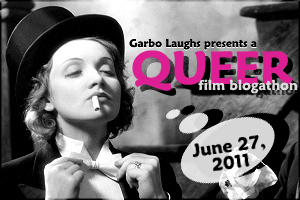Three Days of the Condor (directed by Sydney Pollack) was made in 1975, right after the first oil shocks and in the aftermath of Watergate. At the time, its conspiracy theory was thought to be ridiculously far-fetched, indistinguishable from other strains of lefty paranoia. From a vantage point in 2013, it's a movie that seems unusually prescient, with its secret plans to invade the middle east and its shadowy intelligence shenanigans. That parts of the film are set in the World Trade Center underline this with a dread that the filmmakers could never have foreseen.
Three Days of the Condor is a slick paranoia thriller not much different from others of similar ilk. The early-mid 1970s was the heyday of films like The Conversation, The Parallax View, and The President's Analyst (a slight digression: we're living in a future imagined by The President's Analyst, too, in which the shadow cabinet behind everything is the phone company). The plot here, finds CIA analyst Robert Redford--codenamed "Condor"--going out for lunch only to discover that his entire office has been gunned down in his short absence. He calls it in to his controllers, only do find himself the target of assassination attempts. Clearly, the enemy is "The Company" itself. He mulls over the intelligence his office has gathered--particularly his own work--looking for clues as to what has marked him for death. Meanwhile, he falls in with a photographer who he kidnaps in order to use her car. They develop a relationship as she discovers that he's not crazy and that he's not paranoid enough. Soon enough, Condor uncovers a plot to invade the middle east on the behalf of petroleum interests, and traces the assassins back to the source...
At a very basic level, Three Days of the Condor is an excuse to put movie stars on screen. Robert Redford and Faye Dunaway were both at the peak of their respective stardoms, so pairing them in a big, prestige Hitchcockian adventure must have seemed like a license to print money. Director Sydney Pollack, too, was at the height of his career as a go-to director for turning middlebrow entertainment into highbrow product. This was the fourth of seven movies that Pollack made with Redford, and it's arguably the most commercial of them even if it wasn't the biggest hit. It's the film from their output that hews most closely to a still-viable commercial genre. Graham Greene would have called this film an "entertainment." And so it is. But like Greene's own "entertainments," this is a film that smuggles politics into its warp and woof.
Redford has long been an icon of the Hollywood left and his career as both a movie star and an indie film impresario reflect a commitment to progressivism. Lately, that impulse has led him into didacticism. He was better at this during the more liberally minded 1970s, when he remembered to throw in some red meat for the groundlings. In this case, you have a film that echoes the zeitgeist. Nixon was well-known for maintaining "enemies" lists and for siccing the FBI on his opposition. The CIA was beginning to have a reputation for imperialist meddling after toppling the government of Chile (having toppled the government of Iran two decades earlier). Oil was becoming THE resource triggering international politics. All of this is folded into the plot of Three Days of The Condor. The idea that there were elements of the shadow government that were determined to invade the Middle East in order to secure a hegemony over the oil there was thought preposterous at the time, but in retrospect seems entirely reasonable. Inevitable, even.
I wish this was a better movie, though, which is something I've thought while watching some of this film's inheritors, too (particularly Syriana). Pollack was never as good as his success at the box office and at awards ceremonies would suggest--some of the prestige and lustre from his movie stars clung to him undeserved. Three Days of the Condor is particularly flat-footed. Has there ever been a more cinematically indifferent assassination attempt than the one in this film where Condor's superior tries to lure him to his death? I suspect not. The film's nadir is the sex scene between Redford and Faye Dunaway, which is so coy and so respectable that it seems almost anachronistic. I mean, Jesus Fictional Christ! It was the 1970s! You had license to do whatever you wanted and THAT was all you could come up with? In Pollack's defense, Redford and Dunaway have zero on-screen chemistry, but that's no excuse. This is a scene that could have been made for television. But then, the movie as a whole lacks an instinct for the jugular.
This is a film where it's political shrewdness isn't matched by the art of the film's making. It's a maddening film, because you can see the outlines of a much better film in there somewhere.
I know, I know. It's October and I should be writing about horror movies. Give me time to watch some. Meanwhile, I have some backlog to clear out. The October Challenge will kick off later tonight. Promise.

















No comments:
Post a Comment